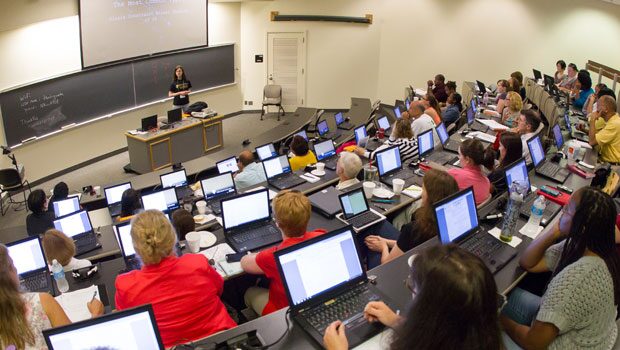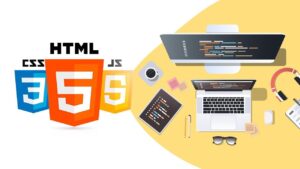As technology continues to shape industries and the global economy, the demand for skilled programmers is higher than ever. With the rise of online coding platforms and flexible learning opportunities, coding education has become more accessible to people around the world. From programming for beginners to advanced programming, the landscape of programming education is evolving rapidly. As we look to the future, several key trends and predictions are shaping the way we learn to code and acquire new skills.
This article will explore the latest trends in online programming education, including the shift toward more flexible learning models, the rise of new programming languages, and the growing emphasis on specialization. Whether you’re an aspiring developer or an experienced coder, these insights will help you stay ahead in the ever-evolving world of coding.

1. The Rise of Flexible and Self-Paced Learning
One of the biggest shifts in programming education is the move towards flexible, self-paced learning models. Traditional classroom-based courses are being replaced by online coding platforms that allow students to learn on their own schedule. Platforms like Udemy, Coursera, and Codecademy offer a wide variety of programming courses for learners at all levels, covering everything from Python programming to JavaScript programming.
The flexibility of online education is particularly valuable for those balancing work, family, or other commitments. Learners can progress at their own pace, making it easier to fit coding into their busy lives. This trend is likely to continue growing, especially as more people recognize the value of acquiring coding skills without the need for formal classroom settings.
Prediction:
In the future, we will see even more self-paced learning options, including bite-sized coding tutorials and modular courses that allow learners to build skills incrementally. Microlearning, which focuses on small, easily digestible lessons, will become a popular way to gain expertise in specific areas of coding.
2. Increased Focus on Specialized Programming Courses
As the demand for coders grows, so does the need for specialization. While it’s important to have a foundational understanding of multiple programming languages, the future of coding education will place a stronger emphasis on specialized skills. Instead of offering broad, generalized courses, platforms will cater to niche areas of development like web development, machine learning, cybersecurity, and blockchain technology.
For example, courses that focus solely on web development using JavaScript frameworks like React or Vue.js will become more common, as will courses that dive deep into Python programming for data science and machine learning. Advanced programming topics like artificial intelligence and natural language processing will also be more readily available as more learners seek to gain expertise in these growing fields.
Prediction:
Expect a surge in specialized programming courses that target emerging fields like AI, machine learning, and blockchain. These courses will cater to both beginners looking to learn to code and experienced developers who want to deepen their knowledge in specific areas.
3. Interactive and Gamified Learning Experiences
Another key trend in the future of coding education is the rise of interactive and gamified learning experiences. Platforms are increasingly incorporating interactive elements such as coding challenges, quizzes, and real-world projects to engage learners. This makes the process of learning to code more enjoyable and effective by providing instant feedback and a sense of accomplishment.
For programming for beginners, gamified experiences like those offered by CodeCombat or Codewars provide a fun way to learn while solving challenges. These platforms teach the basics of coding through interactive gameplay, making it easier for new learners to stay motivated. The rise of coding for kids platforms is also contributing to this trend, as more children are introduced to coding through interactive games and visual programming tools like Scratch.
Prediction:
Interactive and gamified learning experiences will become the standard in online coding education. Future platforms will integrate AI to personalize learning paths, offering more adaptive challenges and feedback tailored to individual learners’ progress and goals.
4. The Growth of Coding Bootcamps and Immersive Learning
While self-paced learning offers flexibility, some learners thrive in a structured, immersive environment. Coding bootcamps have become increasingly popular as a way to rapidly gain job-ready coding skills. These intensive, short-term programs focus on hands-on learning and real-world projects, making them a great option for those looking to make a career switch or quickly enhance their skills.
The future of coding bootcamps will likely include more hybrid models that blend online and in-person instruction, allowing for greater flexibility while still providing the immersive experience that bootcamps are known for. Additionally, expect more bootcamps to offer specific programming certification, making it easier for graduates to validate their skills and stand out to employers.
Prediction:
Coding bootcamps will continue to evolve, offering more hybrid and virtual options. They will focus more on outcomes, such as job placement, and provide tailored support to help students transition into tech careers. Certifications from these bootcamps will gain more recognition in the industry.
5. Greater Emphasis on Certification and Credentialing
As coding becomes an increasingly valuable skill in the job market, more learners are looking for formal recognition of their abilities. Many online platforms now offer programming certification upon completion of their courses, providing learners with a tangible credential that can enhance their resumes and LinkedIn profiles.
Certifications in languages like Python programming, JavaScript programming, and specific frameworks are becoming a standard way for developers to demonstrate their expertise. As more companies value skills over degrees, these certifications will play a crucial role in proving your knowledge to potential employers.
Prediction:
The future will see a greater emphasis on programming certification from both online coding platforms and traditional educational institutions. Certifications will become more widely accepted by employers, particularly as more job roles focus on specific skills rather than requiring formal degrees.
6. AI-Powered Personalized Learning
Artificial intelligence (AI) is transforming many industries, and coding education is no exception. In the near future, AI-powered platforms will provide personalized learning paths based on a learner’s strengths, weaknesses, and progress. This will make it easier for students to focus on the areas where they need the most improvement and move faster through concepts they already understand.
AI can also be used to create adaptive coding tutorials that adjust in difficulty based on a learner’s performance. This personalized approach to education will improve learning outcomes and help students master coding skills more efficiently.
Prediction:
AI-powered personalized learning will become a major trend in online coding education. Expect platforms to integrate AI-driven assessments and feedback, creating customized learning experiences that maximize individual progress.

The future of coding education is exciting, with more options and flexibility than ever before. From self-paced learning to specialized programming courses and AI-powered personalization, learners will have access to a wealth of resources tailored to their individual needs. As technology continues to evolve, so will the methods we use to learn to code, ensuring that coding education remains accessible and effective for all.
Whether you’re just starting out with coding from scratch or looking to master advanced programming, now is the perfect time to explore the many opportunities available in online programming education. With a wide range of programming resources and learning paths, the future of coding is brighter than ever.



